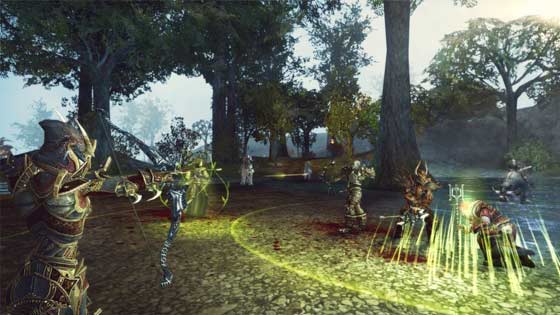Valve has announced that game subscription plans have been added to its online services offerings. The first title featuring such a payment scheme is Darkfall Unholy Wars, a sandbox MMORPG game. Previously games which required micropayments or regular recurring payments handled such transactions through their own game interface or websites.
With the new subscription service Steam users will now be able to “sign-up for, manage, cancel or renew game Subscription Plans at any time, online directly through Steam”. This will make looking after such accounts more direct and manageable, especially if you play several such games via Steam.
The first Steam subscription game
Looking at the first Steam subscription game, Darkfall Unholy Wars, “players are called to form clans and battle for dominance across the seamless, zoneless, uninstanced open fantasy world of Agon.” In the game you will take part in “real-time skirmishes or massive battles, on land and sea, build, defend and conquer empires in the largest seamless, persistent world with no zones, no instances, and no artificial barriers”.

The initial price of the game is £29.95. When you buy the game you agree “to be billed £29.95 today, then auto-renewed for £11.95 every 30 day(s).”
What happens to game data if you cancel a subscription then renew at a later date?
Though you can cancel or renew your subscription at any time it won’t always be the case that your previous game data will be restored. This aspect depends upon how the publisher of the game has written the game software.
Keep an eye on your subscriptions!
Users must keep an eye on auto-renewing subscriptions. You can view past and known upcoming charges via your account details page but you only get an email following the completion of a transaction; after you have just paid for an upcoming period. Refunds for unused subscription time will not be given.
Steam is constantly evolving its software distribution and sales platform. Bringing subscription payments into the Steam platform itself may well be more convenient for players of several such games. No doubt it was also a decision lead by motives of getting a (better) cut from in-game or other external transactions.













